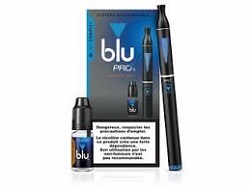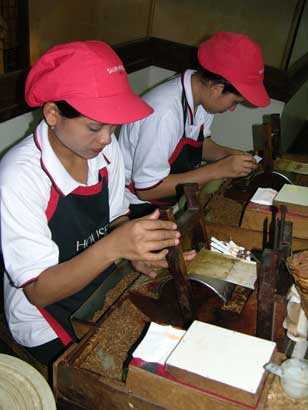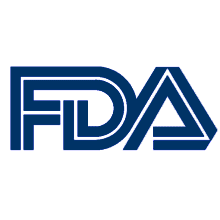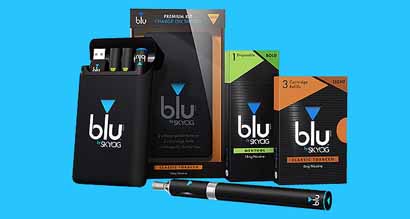The US Food and Drug Administration yesterday launched its The Real Cost Youth E-Cigarette Prevention Campaign, describing it as a ‘new, comprehensive effort aimed at educating kids about the dangers of e-cigarettes’.
The campaign is said to target nearly 10.7 million people aged 12-17 who have used electronic cigarettes or are open to trying them.
It features ‘hard-hitting’, public notices on digital and social media sites popular with teenagers, and includes posters with e-cigarette prevention messages posted in high schools across the nation.
During the past several years, e-cigarettes were the tobacco product [the FDA ‘deems’ e-cigarettes to be tobacco products] most commonly used by young people, the FDA said in a statement issued through its Center for Tobacco Products.
‘In fact, more than two million middle- and high-school students were current users of e-cigarettes in 2017, and the FDA now believes that youth use of e-cigarettes is reaching epidemic proportions,’ according to the statement.
‘With its tagline, “Know the Real Cost of Vaping,” the campaign aims to educate youth that using e-cigarettes, just like cigarettes, puts them at risk for addiction and other health consequences. The messages highlight that nicotine can rewire the brain to crave more nicotine, particularly because adolescent brains are still developing. Other messages highlight that e-cigarettes, among other things, can contain dangerous chemicals such as: acrolein, a chemical that can cause irreversible lung damage; formaldehyde, a cancer-causing chemical; and toxic metal particles, like [such as] chromium, lead and nickel, which can be inhaled into the lungs.
‘This new campaign is part of the FDA’s ongoing efforts to prevent disease and death caused by tobacco use and will complement the agency’s other youth tobacco prevention campaigns.’
More details, including the statement that e-cigarettes have become an ‘almost ubiquitous’ trend among young people, are here.
Category: People

Fake education

It's been a long time coming
Fontem Ventures today filed comments on Health Canada’s proposed list of statements for use in the promotion of vaping products.
“As outlined in our filing, we think Health Canada has chosen the correct and responsible way to help smokers make the best, evidence-based decisions if they consider switching to vaping,” said Ross Parker, Fontem’s director of corporate affairs and communications.
Fontem is launching its myblu pod-based e-vapor device and myblu Intense flavors in retail outlets on a trial basis in Quebec, Canada, this month, ahead of a nation-wide launch in January.
In its filing, Fontem said that any promotional messages should reflect both the risks and the benefits of the category so that adult smokers can make informed choices.
‘Such information should not exaggerate risks to deter use, and Fontem believes Health Canada’s proposed statements strike a good balance,’ Fontem said in a note posted on its website.
‘If adopted, these statements would be the first authorised promotional statements to recognise and maximise the opportunities of vaping products in tobacco harm reduction.’
“More jurisdictions should follow Canada’s lead,” said Parker. “Informed consumers will make better choices, which could lead to better public health outcomes.”
Health Canada issued a request for comments on September 4, and said it was exploring options for future regulations that would permit the use of certain comparative statements in vaping product promotion, with the objective of preventing consumers from being misled about the health hazards of vaping products.
The selected permitted statements would be supported by science and expressed in clear terms to ensure that tobacco users were better informed about the relative health effects of using vaping products.
The statements proposed by Health Canada are:
* If you are a smoker, switching completely to vaping is a much less harmful option.
* While vaping products emit toxic substances, the amount is significantly lower than in tobacco smoke.
* By switching completely to vaping products, smokers are exposed to a small fraction of the 7,000 chemicals found in tobacco smoke.
* Switching completely from combustible tobacco cigarettes to e-cigarettes significantly reduces users’ exposure to numerous toxic and cancer-causing substances.
* Completely replacing your cigarette with a vaping product will significantly reduce your exposure to numerous toxic and cancer-causing substances.
* Switching completely from smoking to e-cigarettes will reduce harms to your health.
* Completely replacing your cigarette with an e-cigarette will reduce harms to your health.
Fontem’s response to Health Canada, including its suggested statements, can be found here.
Florence hits tobacco
It will be some time before North Carolina will be able fully to assess the damage caused to tobacco and other crops by Hurricane Florence, but it is likely to be considerable.
Some of the counties harder hit by Florence are located on the southern end of North Carolina’s largest tobacco-growing region, according to a Bloomberg News story yesterday quoting Matthew Vann, assistant professor and tobacco extension specialist at North Carolina State University.
Other large tobacco-growing counties also suffered damage, but not the amount of flooding that was being reported further south, he said.
“There is a fairly wide range in terms of severity when you look specifically at the tobacco-growing regions,” said Vann, who added that it was too early to estimate total losses.
Lynda Loveland, spokeswoman for the North Carolina Farm Bureau agreed. No one was certain how many tobacco, corn, soybean, cotton, peanut and sweet potato fields were still under water or experiencing flooding, she said in an email to Bloomberg.
It would take several days properly to assess crop damage because the water still needed to recede.
Meanwhile, Kim K. LeQuire, co-owner of Kornegay Family Farms and Produce, was quoted as saying that her operation at Princeton, North Carolina, had seen at least 14 inches (36 cm) of rain as of Sunday, and was still experiencing showers.
Some tobacco leaves on tobacco plants had been blown off their stalks by the strong winds and were lying in puddle-filled fields.
Although about 70 percent of her farm’s tobacco crop had been harvested before the hurricane, the damage had affected some of its best-quality leaf.Alarmism overused
‘FDA [the US Food and Drug Administration] seems to just be going around in circles,’ according to Lindsey Stroud, state government relations manager at The Heartland Institute.
Stroud was commenting on a recent FDA demand that five electronic-cigarette manufacturers address within 60 days what the agency describes as an “epidemic” of teenage vaping or face possible market restrictions on their products: blu, Juul, Logic, MarkTen, and Vuse.
‘Despite the alarmism, youth vaping dropped in 2016 and remained flat in 2017,’ said Stroud.
‘And youth cigarette smoking – it’s at an all-time low.
‘As tobacco companies have been doing for decades, electronic cigarette manufacturers are investing millions into anti-youth initiatives, and some states like Massachusetts have publicly refused to take their money.
‘Retailers in vape shops practice strict and responsible policies to ensure underage consumers are not purchasing vaping products.’
At the same time, Stroud said, the FDA had yet to approve a premarket tobacco product application. ‘Delaying such products limits companies’ ability to modify their current products to be even more child-resistant, including locks on these products,’ she said.
‘Although “protecting the children” is a laudable goal, this rhetoric is overused and threatens the millions of smokers who have quit smoking combustible cigarettes by using these products.’Three million vaping
The number of vapers in Great Britain has topped three million for the first time and is now four times what it was in 2012, according to a story at bbc.co.uk citing the results of a survey by Action on Smoking and Health (Ash).
Most vapers use electronic cigarettes because they have quit smoking, while 40 percent are smokers who are trying to give up.
Ash said the survey of 12,000 British adults suggested smokers were getting the message that switching to vaping could improve their health.
But about a third of smokers had never tried a vaping device and, while increasing numbers of smokers now believed vaping was less harmful than smoking, 22 percent still thought it was as bad or worse.
Among the general public, one in four adults believes vaping is as harmful as smoking.
The survey found that 17 percent of the survey’s participants correctly believed vaping was a lot less harmful than smoking – but 23 percent said they didn’t know which was more harmful. These figures compare with 13 percent and 29 percent last year.
“UK policy is on the right track, with thousands of smokers making the switch to vaping and improving their health, and little sign of non-smokers taking up vaping,” Deborah Arnott, chief executive of Ash, was quoted as saying.
“But even more smokers could benefit if e-cigarettes were licensed as medicines and available on prescription.”
Meanwhile, Alison Cook, director of policy at the British Lung Foundation, said it was really encouraging to see smokers using e-cigarettes to help them quit the much more harmful practice of smoking.
Doctors and pharmacists “should be very clear with people that there is a range of products available and that they can try vaping as a way to stop smoking,” she added.
The top three reasons ex-smokers gave for using e-cigarettes were:- to quit smoking (62 percent);
- because they enjoyed it (11 percent);
- to save money (10 percent).

University learns a lesson
The University of Newcastle (UON), Australia, has announced that it is reversing its whole-campus ban on smoking and vaping, according to a story at planetofthevapes.co.uk.
‘UON is dedicated to providing a safe and healthy environment for staff, students and visitors to our campuses,’ the university was reported to have said in a written statement. ‘We are proud to support a smoke-free experience.
‘From September 2018, designated smoking areas have been introduced at three locations on our Ourimbah campus and at eight locations across the Callaghan campus…’
Instead of a total ban on smoking and vaping, albeit that vaping suffers a de facto ban across the whole of Australia, nicotine users can now use the shelters provided.
Nat McGregor, UON’s CEO said the decision made by the university’s executive committee had not been taken lightly. “The health and safety of our campus environments is a priority that can only be achieved through the responsible behaviour of all,” he said
“Unfortunately, we have clear evidence that our smoking restrictions were being ignored in enough volume to cause real concern. Our smoke-free initiative resulted in people smoking in areas that are not appropriately cleared, increasing the risk of fire, as well as causing pollution to our wetlands from discarded cigarette butts. After an extremely dry winter, the risk of bushfire is heightened this year, and appropriate action was needed to safeguard our community.”
The planetofthevapes report said it was to be hoped that the decision would feed into a more enlightened stance on alternative cessation products.
Currently, the UON’s website advice to vapers is that there is no convincing scientific evidence to indicate that any alternative quit smoking method increased the chances of quitting smoking. Moreover, it warns that vaping won’t work, will be expensive, and carries ‘significant health risks’.
The advice for smokers is that they should use their willpower or make use of counselling and nicotine replacement therapy.
Sales down in Indonesia
Cigarette sales in Indonesia fell by 5.5 percent during the first half of this year, according to an Antara News Agency story quoting the Customs and Excise Directorate General’s acting technical director Nugroho Wahyu Widodo.
As at the end of June, 272 billion cigarettes had been sold during 2018, down from the 288 billion sold during the six months to the end of June 2017.
Nugraha said these figures had come from the national health survey, but that AC Nielsen’s research had shown similar results.
Speaking in Nusa Dua on Friday, he said that the decline in sales was proof that the number of smokers had ‘also tumbled’.
Nugroho said also that while cigarette duty contributed greatly to the state’s revenue, the government was committed to controlling the number of smokers.
FDA to review risk claim
U.S. Smokeless Tobacco Company said on Friday that the Food and Drug Administration had accepted and filed for substantive scientific review a Modified Risk Tobacco Product application for its moist smokeless tobacco product Copenhagen® Snuff Fine Cut.
The application requests FDA authorization to make one claim: ‘IF YOU SMOKE CONSIDER THIS: Switching completely to this product from cigarettes reduces risk of lung cancer’.
“It’s critical that smokers have accurate, non-misleading health information about different tobacco products,” said Joe Murillo, senior vice president, regulatory affairs at Altria Client Services.
“We filed this application because we think adult smokers looking for potential reduced risk alternatives to cigarettes should have accurate information about the relative risks of Copenhagen Snuff.”
The Agency is due to begin a substantive scientific review process, which includes opportunities for public comment.
We'll ‘work with FDA’
The Imperial Brands subsidiary, Fontem Ventures, has said that it is ready to work with the FDA to further strengthen its ‘youth access prevention policies and procedures’.
The company was responding to a statement from the US Food and Drug Administration issued on Wednesday in which it gave electronic-cigarette manufacturers accounting for 97 percent of the US market 60 days to submit plans describing how they intend to address what the FDA sees as the widespread use of their products by young people.
Fontem Ventures said it strongly believed that e-vapor products such as blu and myblu™ were to be used only by adult smokers. ‘Minors should not use any tobacco or nicotine products, and we fully support and advocate for both legislation prohibiting sales of vaping products to minors and the ongoing FDA enforcement action against retailers selling e-vapor and other tobacco products to minors,’ the company said in a statement posted on its website on September 13.
‘We are evaluating today’s [Wednesday’s] request and statement from the FDA. On youth access, we have common aims. We welcome the opportunity to demonstrate, and work with the FDA to further strengthen, our youth access prevention policies and procedures. We will continue to work with regulators in the US and elsewhere to implement best practices in all our commercial activities.
‘Since 2009, blu has marketed e-vapor products to adult smokers in the US and around the world in a responsible manner. While youth smoking rates and use of combustible tobacco products have declined in the US, in line with trends in adult use, we fully understand and share current public concern about youth use of e-vapor products.’
Fontem Ventures said that marketing and advertising standards for blu ensured all communications were intended for, and presented to, adult audiences only. ‘We also take proactive measures to ensure responsible sales practices, both on our own online storefront and through third-party online and brick-and-mortar retail locations:- ‘We conduct a thorough online age verification process via third party vendors Veratad and Experian, in addition to mandatory manual ID checks for anyone with a date of birth that shows them to be under 27.
- ‘We monitor all transactions for evidence of fraudulent activity, unauthorized wholesaling, or sales by proxy where products could potentially reach non-adult users.
- ‘We require a commitment from vape store partners to prohibit underage access.
- ‘We require retail partners’ compliance with all applicable local, state, and federal laws.
- ‘We conduct post-market surveillance to flag any concerning demographic trends.’
Fontem Ventures said it looked forward to working with FDA to address this critical issue.

Don't smoke, chew or spray
New tough penalties have been proposed in Papua New Guinea for people who chew betel nut, smoke tobacco or spray paint in public places, according to a story in The National.
Offenders would incur fines of up to $US3,000 and jail terms of up to three years under a bill tabled in parliament on Wednesday.
Prime Minister Peter O’Neill tabled the Summary Offences (Amendment) Bill, saying it was about “public health and wellbeing”.
The bill covers all vehicles, government offices or private buildings that allow access to the public.
Not all of the bill, as reported, seemed to make sense. In part, it was said to be aimed at ‘banning smoking and the illegal trade of tobacco in public places’, which would raise a few questions.
Debate on the bill is expected to start when Parliament resumes sitting on November 6.








